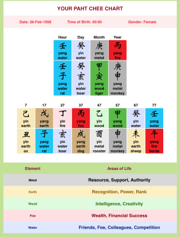‘Are we turning into America?’ Aussies share their thoughts as more and more GPs steer away from bulk-billing
Here at the SDC, we’ve covered the increasing prevalence of GPs asking for gap payments to stay afloat. The Royal Australian College of General Practitioners (RACGP) warned of this trend for months. But now, with inflation soaring and a possible recession looming, more and more Aussies are feeling the pinch.
On Reddit, one user shared that their GP is no longer bulk-billing and asked if it is happening in other practices too. Based in Sydney’s Northern Beaches, they asked: ‘Is it part of the Great Rise of the Cost of Living?’
Many said it was happening in their areas, too. A Redditor commented: ‘It recently happened where I am, in the rural outskirts of Brisbane. From walk-in to $70 per appointment, and half back. It's going to make it really tough for some people. The government should be cutting a bunch before allowing this. Sport and club funding etc., while that's important, is not medical care-important.’

GPs are increasingly forced to turn away from bulk billing after years of consecutive losses. Credit: Karolina Grabowska/Pexels
Another said: ‘Adelaide here – can’t find a single bulk billing doctor. I get they need to cover costs, but some people simply cannot afford to see a doctor now. It's not the Australia I know. Disappointing our government has let this happen.’
A third chimed in: ‘Same here, been with GP for ten years but just after Covid lockdowns in Melb, they don't bulk bill. Telephone consult is still bulk-billed, but sometimes I need face-to-face consult which will cost me $75 less Medicare.’
Another stayed with their usual GP but acknowledged that it’s hurting their wallet: ‘My doctor is no longer bulk billing. One of my children was diagnosed with a serious health issue that is lifelong and can take them at any time. I now face paying $150 plus weekly just to see the doctor for check-up or completely moving GPs. It just makes it difficult when our current GP knows the ins and outs.’ They continued: ‘I support Australian GPs and any medical professional, the government need to get their fingers out of their butts and fix the whole medical system and Medicare.’
While Redditors were concerned about the rising costs of healthcare, many sympathised with GPs.
‘I am not smart enough to be a doctor, I have no degree and three years of industry experience in software development. I earn about the same as a bulk billing GP and I interact with 0 sick people. Either prices go up or we won't have any GPs, said one user.’
Another shared: ‘I completely agree that GPs should be charging more. It's ridiculous to expect a fully qualified specialist GP to be getting a Medicare rate of $39 per consult which usually you get 60% of that back If you are an employee of the practice. [...] My dad's an electrician and charges 120 an hour.. standard male haircuts are at $40. Why should we expect a medical specialist to charge less?’
Australia is already facing a decade-long shortage of GPs, but with how things currently are, the country is not likely to meet the recommended number soon. Fewer medical graduates are interested in becoming GPs, with only one in eight entering the specialty, which is not enough to replace veteran doctors who will retire over the coming years.
A Redditor wrote: ‘Enrolment in GP speciality is down massively over the past five years (well below the level predicted we will need), as I don’t think most doctors either want to specialise in general practice or don’t see it as lucrative as other specialities, or both. All the GPs I know have side jobs within the medical profession in addition to their work as a GP, some for financial reasons, some so they vary their work schedule as they don’t find general practice interesting. I can’t help but feel that we will have a crisis within general practice within the next decade, and the idea of a bulk billing GP will cease to exist.’
A physician also shared the sentiment among their general practise colleagues: ‘I’m a doctor but working in a hospital, and my GP colleagues are really disillusioned at the moment. They are leaving in droves – and it’s also affected the GP-run urgent cares in rural towns.’
Many fear that the healthcare system is becoming Americanised. In the US, the healthcare system often leads to high deductibles and out-of-pocket costs, which are expensive even to citizens with insurance. Millions of Americans are one medical emergency away from financial ruin – healthcare costs are the number one reason for personal bankruptcy in the country.
One user commented: ‘As someone who lived in the United States for a good portion of time, including a bit with Covid, coming back and seeing the healthcare system in Australia is very scary, it’s almost Americanised. [...] This is a huge departure from just a couple of years ago. I know of some emergency departments charging upfront payments in Sydney as well for private ones. That’s another huge issue is the emergency departments wait times are blown out of control.’
Medicare figures show that the bulk-billing rate dropped to 83.4 per cent in the last quarter of 2022, compared to 88.4 per cent late last year. However, the RACGP says that the numbers refer to the percentage of bulk-billed services, not patients who found bulk-billing GPs. RACPG President Nicole Higgins says the real level is actually far more dire, closer to 66 per cent.
Commenters encouraged fellow Aussies to make their voices heard through their representatives: ‘Straight up, write a letter to your local federal MP. Medicare rebates for GP haven't increased in a decade. They can no longer afford to bulk bill and stay open.’
Another wrote: ‘Investing in primary care is the only way we will stop the increasing cost of healthcare for our country and the widening gap in those who can and can’t afford the health care they need. If you want universal healthcare to remain a thing in Australia, then call and write to your federal MP.’
If you’re interested in what doctors have to say on the matter, ABC recently interviewed Dr Sarah McLay, a GP in rural Queensland who is moving away from bulk billing after personally losing $200,000 in the last three years:
On Reddit, one user shared that their GP is no longer bulk-billing and asked if it is happening in other practices too. Based in Sydney’s Northern Beaches, they asked: ‘Is it part of the Great Rise of the Cost of Living?’
Many said it was happening in their areas, too. A Redditor commented: ‘It recently happened where I am, in the rural outskirts of Brisbane. From walk-in to $70 per appointment, and half back. It's going to make it really tough for some people. The government should be cutting a bunch before allowing this. Sport and club funding etc., while that's important, is not medical care-important.’

GPs are increasingly forced to turn away from bulk billing after years of consecutive losses. Credit: Karolina Grabowska/Pexels
Another said: ‘Adelaide here – can’t find a single bulk billing doctor. I get they need to cover costs, but some people simply cannot afford to see a doctor now. It's not the Australia I know. Disappointing our government has let this happen.’
A third chimed in: ‘Same here, been with GP for ten years but just after Covid lockdowns in Melb, they don't bulk bill. Telephone consult is still bulk-billed, but sometimes I need face-to-face consult which will cost me $75 less Medicare.’
Another stayed with their usual GP but acknowledged that it’s hurting their wallet: ‘My doctor is no longer bulk billing. One of my children was diagnosed with a serious health issue that is lifelong and can take them at any time. I now face paying $150 plus weekly just to see the doctor for check-up or completely moving GPs. It just makes it difficult when our current GP knows the ins and outs.’ They continued: ‘I support Australian GPs and any medical professional, the government need to get their fingers out of their butts and fix the whole medical system and Medicare.’
While Redditors were concerned about the rising costs of healthcare, many sympathised with GPs.
‘I am not smart enough to be a doctor, I have no degree and three years of industry experience in software development. I earn about the same as a bulk billing GP and I interact with 0 sick people. Either prices go up or we won't have any GPs, said one user.’
Another shared: ‘I completely agree that GPs should be charging more. It's ridiculous to expect a fully qualified specialist GP to be getting a Medicare rate of $39 per consult which usually you get 60% of that back If you are an employee of the practice. [...] My dad's an electrician and charges 120 an hour.. standard male haircuts are at $40. Why should we expect a medical specialist to charge less?’
Australia is already facing a decade-long shortage of GPs, but with how things currently are, the country is not likely to meet the recommended number soon. Fewer medical graduates are interested in becoming GPs, with only one in eight entering the specialty, which is not enough to replace veteran doctors who will retire over the coming years.
A Redditor wrote: ‘Enrolment in GP speciality is down massively over the past five years (well below the level predicted we will need), as I don’t think most doctors either want to specialise in general practice or don’t see it as lucrative as other specialities, or both. All the GPs I know have side jobs within the medical profession in addition to their work as a GP, some for financial reasons, some so they vary their work schedule as they don’t find general practice interesting. I can’t help but feel that we will have a crisis within general practice within the next decade, and the idea of a bulk billing GP will cease to exist.’
A physician also shared the sentiment among their general practise colleagues: ‘I’m a doctor but working in a hospital, and my GP colleagues are really disillusioned at the moment. They are leaving in droves – and it’s also affected the GP-run urgent cares in rural towns.’
Many fear that the healthcare system is becoming Americanised. In the US, the healthcare system often leads to high deductibles and out-of-pocket costs, which are expensive even to citizens with insurance. Millions of Americans are one medical emergency away from financial ruin – healthcare costs are the number one reason for personal bankruptcy in the country.
One user commented: ‘As someone who lived in the United States for a good portion of time, including a bit with Covid, coming back and seeing the healthcare system in Australia is very scary, it’s almost Americanised. [...] This is a huge departure from just a couple of years ago. I know of some emergency departments charging upfront payments in Sydney as well for private ones. That’s another huge issue is the emergency departments wait times are blown out of control.’
Medicare figures show that the bulk-billing rate dropped to 83.4 per cent in the last quarter of 2022, compared to 88.4 per cent late last year. However, the RACGP says that the numbers refer to the percentage of bulk-billed services, not patients who found bulk-billing GPs. RACPG President Nicole Higgins says the real level is actually far more dire, closer to 66 per cent.
Commenters encouraged fellow Aussies to make their voices heard through their representatives: ‘Straight up, write a letter to your local federal MP. Medicare rebates for GP haven't increased in a decade. They can no longer afford to bulk bill and stay open.’
Another wrote: ‘Investing in primary care is the only way we will stop the increasing cost of healthcare for our country and the widening gap in those who can and can’t afford the health care they need. If you want universal healthcare to remain a thing in Australia, then call and write to your federal MP.’
If you’re interested in what doctors have to say on the matter, ABC recently interviewed Dr Sarah McLay, a GP in rural Queensland who is moving away from bulk billing after personally losing $200,000 in the last three years:







